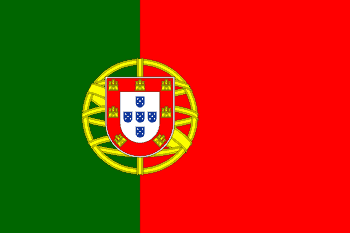Portuguese

Portuguese belongs to the group of Romance languages. It is the official language of seven countries across the world: Portugal, Brazil, Cape Verde, Guinea-Bissau, Angola, Mozambique, and São Tomé and Príncipe. It is the co-official language in East Timor, Macau, and Equatorial Guinea. The language is also spoken in regions where Portuguese colonisation had taken place at some point. Notable among these are Goa, Diu, and Daman in India, Malacca in Malaysia, Flores in Indonesia, and Batticaloa in Sri Lanka. Some schools in South American and African countries are offering Portuguese as part of their curriculum. An estimated 220 million people speak Portuguese worldwide.
The language has undergone changes over time, depending on the region it is spoken in. Thus, there are grammatical differences between the Portuguese spoken in Portugal and Europe and that spoken in Brazil. Most dialects of Portuguese have different vocabulary and accents as well. The dialects spoken in Africa, Asia, and parts of America are Portuguese-based creoles that have the language as the base but are amalgamated with the local vocabulary, syntax, and grammar to form a new dialect altogether.
Portuguese has its roots in Latin. It came to the Iberian Peninsula through settlers from Rome in 218 BC. At the time, Latin was the official language for administrative and official written work but was not spoken by citizens. The language spoken by the common man was termed lingua vulgar (‘ordinary language’) till 1290 when King Dinis gave it official status and called it Portuguese.
Portuguese has 26 letters in the alphabet, much like its Latin parent. It has 14 vowel sounds denoted by accents. For a few decades from the 1940s, the letters k, y, and w were not included in the alphabet as they were considered foreign. However, in 2009 they were re-introduced in the language. Portuguese too has lent itself to other languages. Diverse languages such as Hindi, Swahili, Tamil, Konkani, Sinhalese, and Japanese, for example, also have words with roots in Portuguese because these regions were colonised by Portuguese rulers in history.
In 1916, rules regarding spellings were re-framed in Portugal and it was decreed that they would be spelt the way they were pronounced. Similar rules were framed in Brazil too in 1943 which were changed somewhat in 1970. In 2009, plans were made in Brazil to unify all Portuguese-speaking nations by creating a common code for written Portuguese; the plan is still under development.
Copyright © 2013-2024 All Rights Reserved